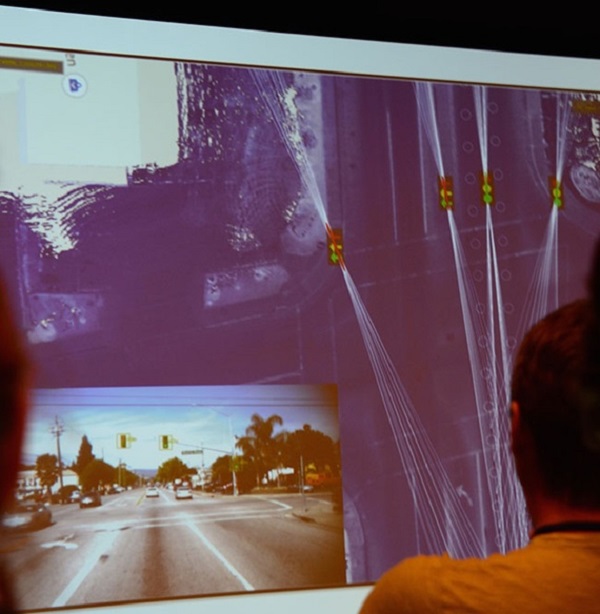Let’s face it, if self-driving cars are ever to become mainstream, they need to know roads very accurately, and who could ever map our real world better than the master of search engine crawlers?
With such services and products as Street View, Project Tango, Indoor Maps, and Android location, Google has breached the border between the Web and real-life. The virtual representation of the real-world that Google is currently working on has more applications than just helping self-driving cars get around. For example, Google intends to improve its Google Now service, while also tracking offline ads.

Andrew Chatham, the Google self-driving car team’s mapping lead, pointed out in an interview with the Atlantic that “Really, [our maps] are any geographic information that we can tell the car in advance to make its job easier. We tell it how high the traffic signals are off the ground, the exact position of the curbs, so the car knows where not to drive. We’d also include information that you can’t even see like implied speed limits.”
According to Chatham the virtual world created by Google doesn’t have to be recreated from scratch each time the car’s engine is turned on. Instead, some data is pre-loaded and the car’s software knows what to expect: “Rather than having to figure out what the world looks like and what it means from scratch every time we turn on the software, we tell it what the world is expected to look like when it is empty. And then the job of the software is to figure out how the world is different from that expectation. This makes the problem a lot simpler.”
Chris Urmson, a former Carnegie Mellon professor who runs Google’s self-driving car program, also expressed his enthusiasm regarding Google’s latest project: “It’s one of those things that Google, as a company, has some experience with our Google Maps product and Street View. We’ve gone around and we’ve collected this data so you can have this wonderful experience of visiting places remotely. And it’s a very similar kind of capability to the one we use here.”
Google’s self-driving car has crawled 2,000 miles in the US, that being 0.0005% of the road network of the United States. Mind you, Google is not intimidated at all by this, and it means to continue the hard work until it’s all done.
Be social! Follow Walyou on Facebook and Twitter, and read more related stories about the Google Projected mode in-car infotainment system and Hyundai’s integration of Google Glass into the 2015 Genesis.










